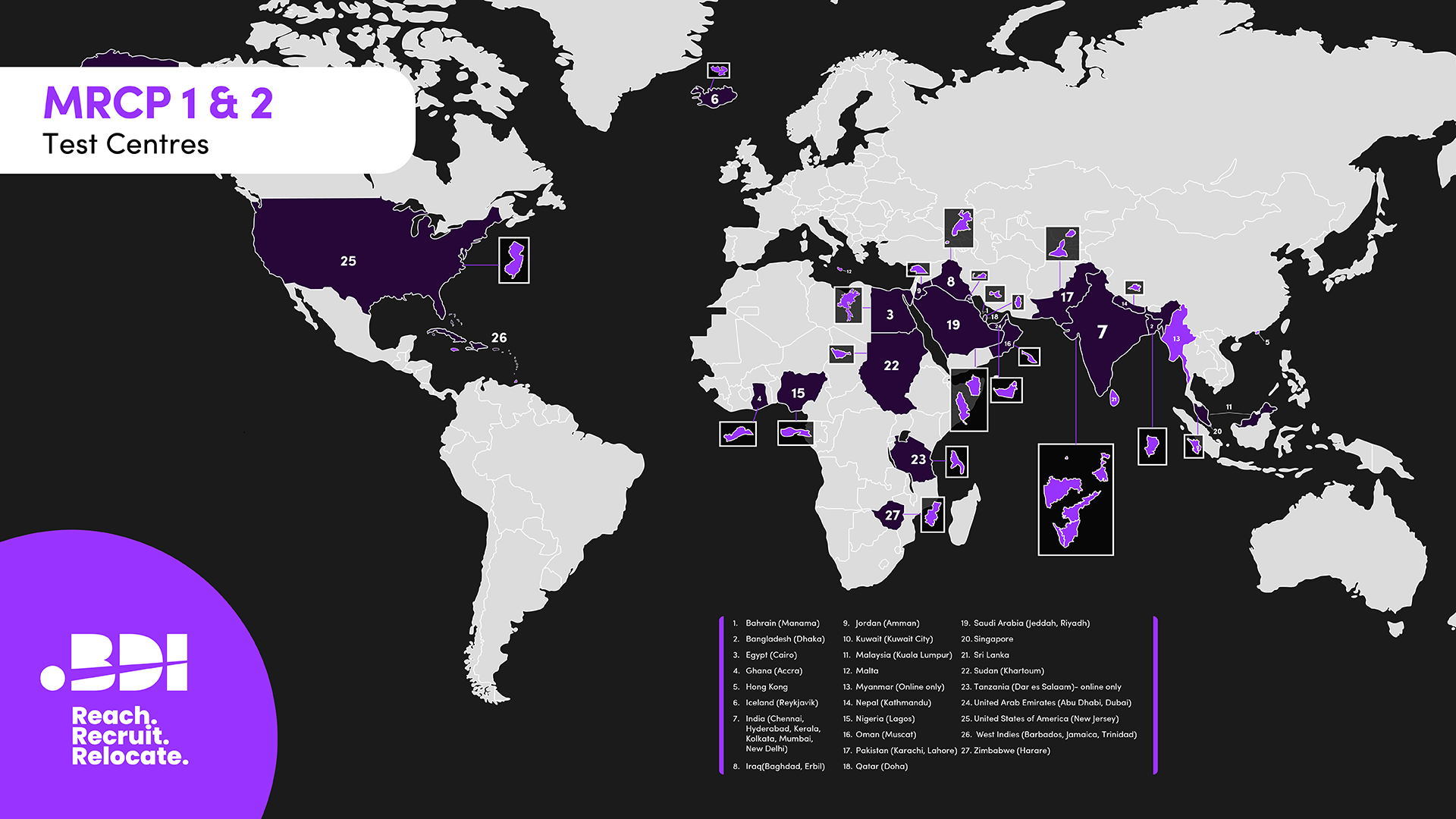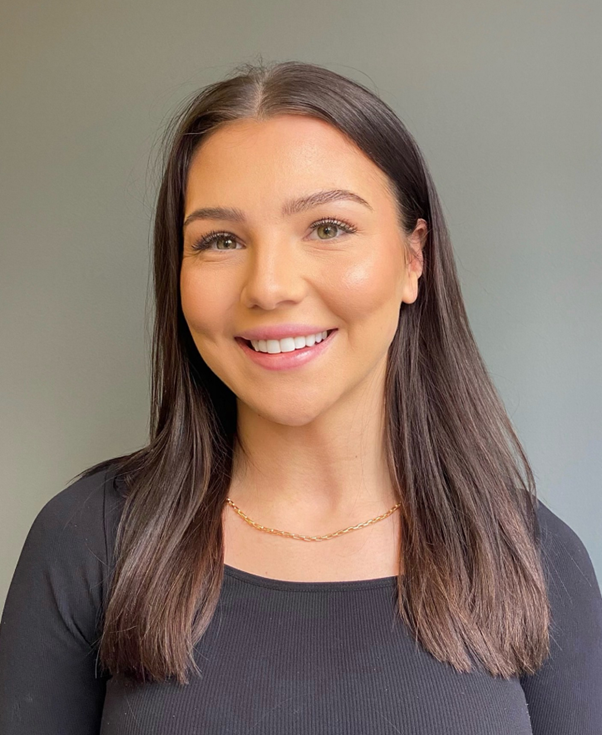
MRCP Part 1 Overview
15 Feb, 20238 Minutes
The Royal College of Physicians offers the MRCP diploma, which tests your medical knowledge, behaviour, and skills. Upon successful completion, you can use it as a route to GMC registration, allowing you to work in the UK. From there, you can apply for speciality training in the UK and work in an ST3+ level role.
MRCP involves three separate examinations: MRCP part one, part two, and PACES. All three of these exams prove a difficult challenge, so passing them requires a lot of preparation. In this article, we'll focus on part one, a one-day entry-level exam covering basic knowledge for physicians, including clinical sciences and common disorders.
Who is Eligible for MRCP Part 1?
To sit the MRCP part one exam, you must pass the following criteria:
- Have a PMQ recognised by the GMC
- Have completed a 12-month internship following graduation
As we said, it's an entry-level exam, making it accessible to medical graduates. Plus, you can do the exam from plenty of countries.
While it is an entry-level exam, that doesn't mean it's any less challenging. First, you must consider whether it's the right route for your GMC registration. MRCP is for trainees who want to enter a speciality and achieve a more senior role (ST3+).
MRCP Part 1: Cost and How to Apply
As of 2023, MRCP part one costs £460 if you're taking it in the UK and £616 if you take it overseas. Fees are different if you take the exam in Hong Kong.
You can apply for MRCP part one on the MRCP(UK) website. Set up an MRCP account on there to do that. On the application, you'll have to give your details and evidence of your primary qualification. After that, you'll choose which test centre and date you'll take the exam, and then pay the fee. MRCP(UK) has more information about applying if you need help with the process!
Where can I sit the exam?
As well as test centres in the UK, you'll be pleased to know that the MRCP exams are accessible all around the world. Check out the map below to see if your country has a test facility and the full list of locations follows:

- Bahrain (Manama)
- Bangladesh (Dhaka)
- Egypt (Cairo)
- Ghana (Accra)
- Hong Kong
- Iceland (Reykjavik)
- India (Chennai)
- India (Hyderabad)
- India (Kerala)
- India (Kolkata)
- India (Mumbai)
- India (New Delhi)
- Iraq (Baghdad)
- Iraq (Erbil)
- Jordan (Amman)
- Kenya (Nairobi)
- Kuwait (Kuwait City)
- Malaysia (Kuala Lumpur)
- Malta
- Myanmar (Online only)
- Nepal (Kathmandu)
- Nigeria (Lagos)
- Oman (Muscat)
- Pakistan (Karachi)
- Pakistan (Lahore)
- Qatar (Doha)
- Saudi Arabia (Jeddah)
- Saudi Arabia (Riyadh)
- Singapore
- Sri Lanka
- Sudan (Khartoum)
- Tanzania (Dar es Salaam)- online only
- United Arab Emirates (Abu Dhabi)
- United Arab Emirates (Dubai)
- United States of America (New Jersey)
- West Indies (Barbados)
- West Indies (Jamaica)
- West Indies (Trinidad)
- Zimbabwe (Harare)
Exam Structure
The MRCP part one takes place over a day. The exam is split into two papers that each last three hours and have 100 questions (200 questions total). Each question has five possible answers, with only one correct answer. However, the answer won't necessarily be obvious – it requires core knowledge to determine the best one.
The exam topics meet the UK's national guidelines, covering basic sciences and common disorders. Here are the specialities that the exam covers:
- Cardiology
- Clinical Pharmacology and Therapeutics
- Clinical Sciences
- Endocrinology, Diabetes and Metabolic Medicine
- Gastroenterology and Hepatology
- Geriatric Medicine
- Haematology
- Infection Diseases
- Neurology
- Oncology
- Medical Ophthalmology
- Palliative Medicine and End of Life Care
- Psychiatry
- Renal Medicine
- Respiratory Medicine
- Rheumatology
For the clinical sciences part of the paper, here is what will be covered:
- Cell, molecular and membrane biology
- Clinical anatomy
- Clinical biochemistry and metabolism
- Clinical physiology
- Genetics
- Immunology
- Statistics, epidemiology and evidence-based medicine
Tips for Passing MRCP Part 1
Those who pass MRCP part one the first time are determined, dedicated, and put plenty of hours into revision. The pass rate for part one is only 55-60%, so it's essential to know how to prepare properly and act on the day. Here are our top tips for passing MRCP part one.
Do the Mock Exams and Practice Questions
To pass, you need to know what to expect. Even after picking up a lot of clinical knowledge from your training experience, you still might not pass if you don't know what the questions look like. That's why it's so important to do the mock exams and practice questions provided by the Royal College of Physicians – they have excellent resources, so use them.
Allow Six Months of Revision
Giving yourself enough time to revise all the topics is key to passing. We recommend a minimum of six months of revision to ensure you cover all the subjects.
Plan Your Revision Strategy
You might not have much free time, so plan a revision strategy to ensure you fit enough hours into studying. The trick is to be consistent with your revision. For example, you might decide to section off an hour each day to go over past exam questions and read textbooks.
Vary the Resources
Your studies will not be as productive if you only revise from one textbook. Be sure to vary your resources so that you get the best out of your studies. A mixture of books, past exam questions, and mock exams will help broaden your knowledge.
We recommend "Basic Sciences for Core Medical Training and the MRCP" and "Essential Revision Notes for MRCP".
Remember – MRCP part one is all about providing you with the medical knowledge and clinical experience to answer various questions on various topics. Honing one speciality – even if it's your preferred speciality – won't be enough. You need to show your expertise covers all grounds.
What Next?
If you pass MRCP part one, then first of all – congratulations. As we mentioned, the exam is challenging, and it proves you have sufficient clinical knowledge and you know how to apply it. The next step is taking MRCP part 2. While you can go straight to PACES, we don't recommend that route – and neither does the Royal College of Physicians!
MRCP part two is slightly more challenging than part one and requires you to expand your knowledge even further. It's recommended that you complete at least 36 months of clinical training before you embark on it.
After completing part two, you can move on to the PACES exam. Passing all three means you get your MRCP diploma, which provides access to GMC registration, so you can start practising medicine in the UK at level ST3+.
In Summary
MRCP part one begins the journey toward practising medicine at a senior level in the UK and later going into a speciality. To pass it, you'll need to dedicate a lot of time and energy to revision and training. Next is MRCP part two, which we will discuss in the next article, so stick around!
If you’re unsure which route is the right one for you or you have more questions about your journey towards working in the UK then tell us and we’ll be happy to offer our expert support and guidance.


